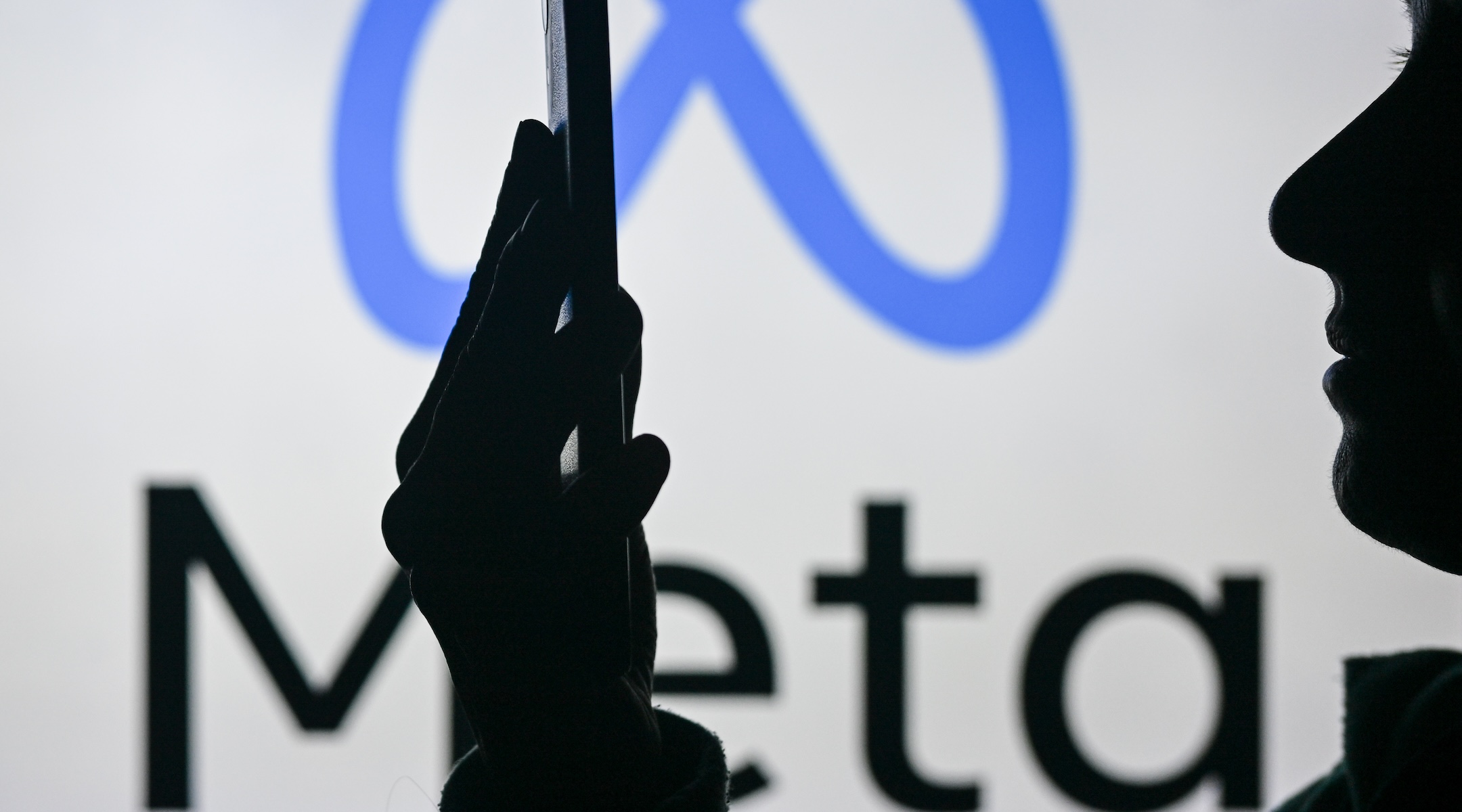The social media giant Meta announced Tuesday that it would ban derogatory or threatening references to “Zionists” in cases where the term is used to refer to Jews or Israelis rather than supporters of the movement to establish a Jewish polity.
The change means that posts on Facebook and Instagram will now be removed if moderators determine they use “antisemitic stereotypes, or threaten other types of harm through intimidation or violence directed against Jews or Israelis under the guise of attacking Zionists,” Meta said in a blog post.
Under Meta’s hate speech policy, users are not allowed to attack people on the basis of characteristics such as race, ethnicity, religious affiliation, disability and gender identity. Existing rules already prohibited using the word “Zionist” to refer to Jews or Israelis in two narrowly defined situations, including “where Zionists are compared to rats.” Meta said that those rules didn’t account for the broad range of ways that people use the term.
Many Jewish groups have accused people of referring to “Zionists” rather than Jews as a cover for antisemitic speech, and some welcomed the announcement, with the World Jewish Congress referring to it as a “landmark decision” in a press release.
“Meta’s decision is a much-needed advancement in our ongoing fight against online antisemitism and hatred,” said Ronald Lauder, WJC’s president. “By recognizing and addressing the misuse of the term ‘Zionist,’ Meta is taking a bold stand against those who seek to mask their hatred of Jews.”
Lauder also called on the owners of other social media platforms to follow suit.
Nearly 150 advocacy groups and experts provided input that led to Meta’s policy update, including CyberWell, a nonprofit that has been documenting the swell of online antisemitism and Holocaust denial since the start of the Hamas-Israel war. CyberWell, which is based in Tel Aviv, employs the International Holocaust Remembrance Alliance’s working definition of antisemitism, a popular and controversial document that categorizes some criticism of Israel as antisemitism.
In a press release, CyberWell said it provided Meta with data demonstrating the widespread use of “Zionist” as a euphemism for Jews and Israelis, adding that it will track how well the company enforces its new policy.
“The use of the term ‘Zionist’ to spread antisemitic vitriol while avoiding detection has been used by radicals on the far left and extremists on the far right. Today, Meta has spoken through thoughtful action,” CyberWell’s executive director, Tal-Or Cohen Montemayor, said in a statement.
Meta said it is still considering how its policies should address cases where users refer to Zionists as criminals. In some contexts, it said, the use of “Zionists” and “criminals” could be shorthand for actions of the government or military and may represent legitimate speech regarding alleged war crimes.
To get guidance, Meta is waiting on input from its Oversight Board, the independent body tasked with reviewing the company’s content moderation decisions and making policy recommendations.
An Oversight Board spokesperson told the Jewish Telegraphic Agency that its guidance on the matter will be ready in September.
JTA has documented Jewish history in real-time for over a century. Keep our journalism strong by joining us in supporting independent, award-winning reporting.






